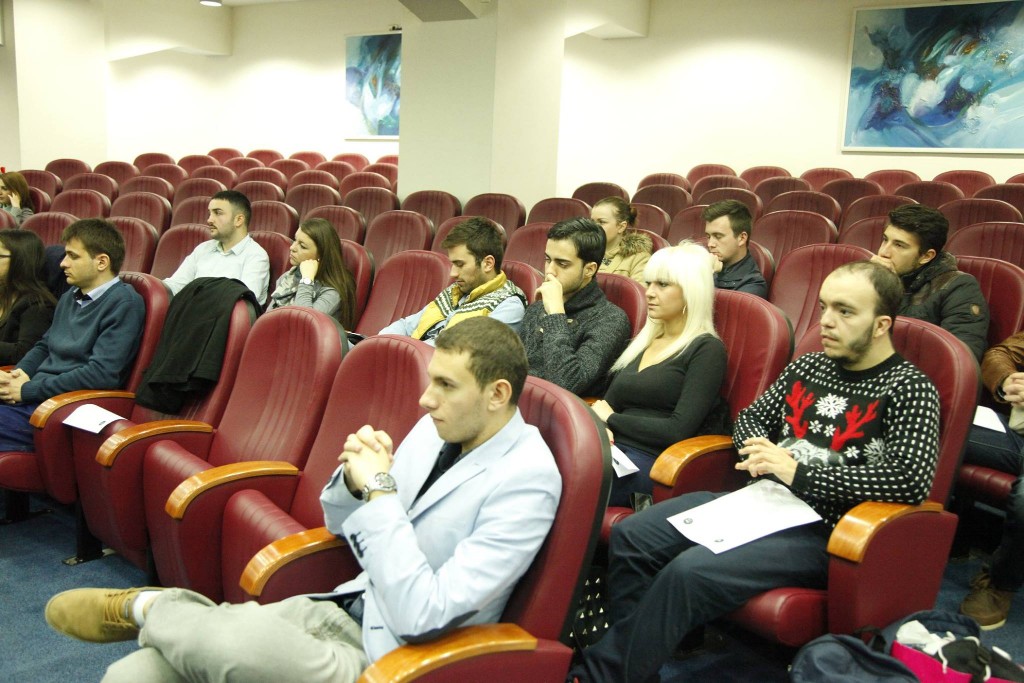
What was the topic of the discussion and how was organised?
We organized a panel discussion labelled “The Macedonian Question in the Context of European
Citizenship”. Initially, Daniel gave an opening speech and presented the YRA Program.
Afterwards, three panel discussants, namely, Ivanka Dodovska, a historian; Nano Ruzin, a
politician and diplomat; and Jovan Bliznakovski, NGO worker, presented their views on the topic
with reference to several key phenomena – ethnicity, nation, reconciliation, religion,
multiculturalism and civil society. Finally, the floor was open for questions and comments.
Explain the reaction of the participants on your speech.
As none of us gave a speech, we will talk about the participants’ reactions on the panel
discussants’ talks. For some of the participants the topic of the lecture was not very familiar and
they seem to be quite interested and willing to learn. On the other hand, some of the participants
were quite familiar with the topic and they seemed to be evaluating the intentions of the panel
discussants with the view they presented.
Have you notice the impact of your lecture on the participants? Explain.
Most of the participants said they liked the lectured, they learned new things and they would love
if there is another discussion on a similar topic. That notwithstanding, some of them seemed
dissatisfied – apparently they expected something else or were already familiar with the topic.
What were the questions posed by the participants and how did you react?
Some of the questions were pretty basic and we believe that that group of participants learned a
lot. Herein, I list several other questions posed by the participants: How and why are residents of
US different from European citizens in terms of national identity? Do people in Macedonia
differentiate between national, religious and ethnic identity?, Is there awareness about national
identity among Macedonians?; What do you mean by `language is the symbol of Macedonian
national identity` and are the languages of the ethnic minorities part of it?…





